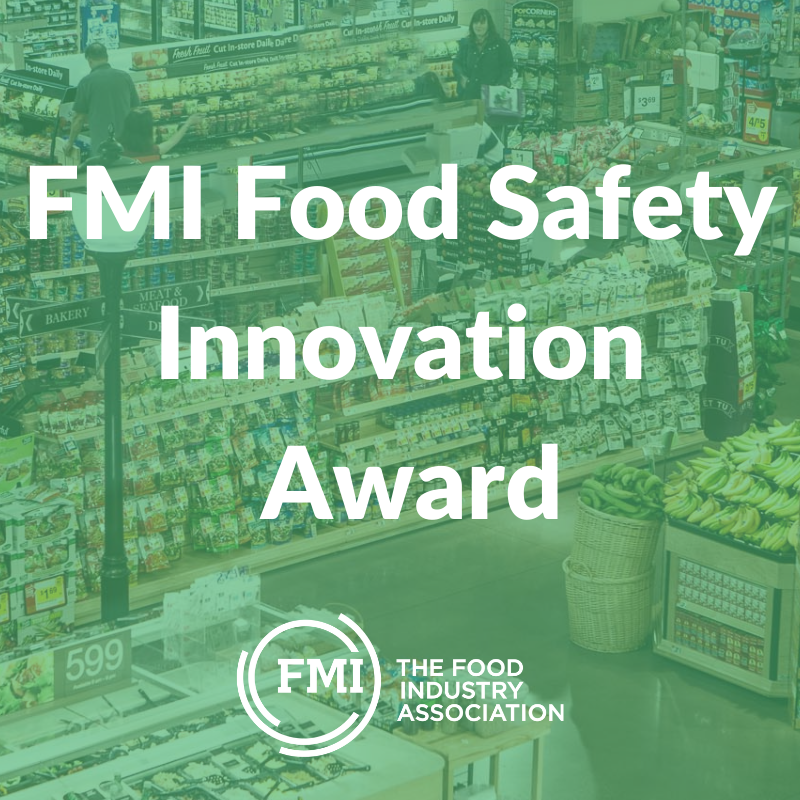By Dr. Hilary Thesmar, Chief Science Officer and SVP, Food and Product Safety, FMI
 Food safety is the single most important issue the food industry prioritizes every day. Without a safe food supply, we risk the trust and confidence of the consumers we’re committed to serving. Our first and perennial priority is focusing on prevention to mitigate the likelihood of foodborne illness outbreaks in the first place. This is why FMI and our members have worked tirelessly to ensure compliance with the Food Safety Modernization Act (FSMA) and the U.S. Food and Drug Administration’s (FDA) FSMA regulations. This is also why our members have already implemented robust traceability procedures that allow them to provide regulators with timely and complete information in the course of foodborne illness investigations and product recalls.
Food safety is the single most important issue the food industry prioritizes every day. Without a safe food supply, we risk the trust and confidence of the consumers we’re committed to serving. Our first and perennial priority is focusing on prevention to mitigate the likelihood of foodborne illness outbreaks in the first place. This is why FMI and our members have worked tirelessly to ensure compliance with the Food Safety Modernization Act (FSMA) and the U.S. Food and Drug Administration’s (FDA) FSMA regulations. This is also why our members have already implemented robust traceability procedures that allow them to provide regulators with timely and complete information in the course of foodborne illness investigations and product recalls.
To be clear, our industry consistently and tirelessly works with FDA and our supply chain partners on prevention every day, and the food industry already does a great job at assisting in foodborne illness investigations to identify potential sources of contamination. Food retailers regularly provide regulators with critical information during the course of investigations so that necessary action can be taken. As an example, following the 2018 romaine lettuce outbreaks, we created the “FMI Recommended Food Safety Practices for Leafy Greens” guide to increase communication across the entire supply chain, to protect consumers and the safety of products they consume, and to facilitate effective response to food safety incidents should they occur again.
FDA’s Food Traceability Rule is ostensibly aimed at enhancing food safety. But, while we share the agency’s commitment to enhancing traceability, we are concerned that the rule's undue complexity and immense burdens will undercut its effectiveness. In short, without additional flexibility, the rule risks imposing significant costs on industry and consumers, while failing to measurably improve food safety.
The rule was written in a way that extends far beyond the original intent of Congress when it passed FSMA more than a decade ago. For example, the rule will require that companies collect and pass forward information that is not currently collected in the normal course of business practices. And, despite the fact that the rule was intended to cover only a limited set of “high risk” foods, the current regulation would apply to dozens of items and ingredients included in tens of thousands of products, many of which pose little demonstrated food safety risk. This means that industry will need to track and keep additional records on the hundreds of thousands of shipments that happen across the supply chain every day. The rule also requires that these records be maintained for two years – significantly longer than the life cycle of perishable products – necessitating substantial physical and electronic storage needs.
Despite these and multiple other challenges, the food industry is working hard to comply by the January 2026 deadline. We have put in a tremendous amount of effort to support our members in understanding and complying with the rule. We have hosted numerous digital seminars with GS1-US to educate members on the rule’s requirements, held an all-day in-person workshop with our Food Protection Committee to identify challenges and potential solutions, and developed informative resources including our compliance guide and implementation guide.
FMI is committed to working directly with FDA to provide critical flexibility under the rule to make it implementable for industry while also meeting the agency’s goal of having access to data to solve foodborne illness investigations. This requires the development of practical solutions that are flexible, interoperable, open source, and can work across the entire sector – from retailers to wholesalers and national chains to single-store operators – in a way that doesn’t result in increased costs for consumers and that still provides FDA with useful traceability information. For example, this is why we encourage FDA to participate in pilot programs, which will provide an opportunity to uncover real-world challenges encountered in implementing the rule and will allow both industry and regulators to identify best practices for compliance.
It also requires our partners further up the supply chain, like farmers, harvesters, packers, and suppliers to understand their own regulatory requirements under the rule and have unified systems in place to share the necessary data with their trading partners. Those solutions do not currently exist, which is why we believe the best approach is to take our time to get this right instead of rushing toward a “solution” that doesn’t work.
Like any new and complex regulatory framework, coming into compliance with this rule will be an incredible undertaking for the entire food supply chain. There is no easy solution that will guarantee compliance quickly. We believe that providing industry with additional time to identify and implement solutions to these complex problems will allow both FDA and industry to best work towards achieving the rule’s objectives. We support strong traceability systems, but it must be done in a way that is practical, achievable, and produces measurable results in enhancing food safety.


 Industry Topics address your specific area of expertise with resources, reports, events and more.
Industry Topics address your specific area of expertise with resources, reports, events and more.
 Our Research covers consumer behavior and retail operation benchmarks so you can make informed business decisions.
Our Research covers consumer behavior and retail operation benchmarks so you can make informed business decisions.
 Events and Education including online and in-person help you advance your food retail career.
Events and Education including online and in-person help you advance your food retail career.
 Food Safety training, resources and guidance that help you create a company food safety culture.
Food Safety training, resources and guidance that help you create a company food safety culture.
 Government Affairs work — federal and state — on the latest food industry policy, regulatory and legislative issues.
Government Affairs work — federal and state — on the latest food industry policy, regulatory and legislative issues.
 Get Involved. From industry awards to newsletters and committees, these resources help you take advantage of your membership.
Get Involved. From industry awards to newsletters and committees, these resources help you take advantage of your membership.
 Best practices, guidance documents, infographics, signage and more for the food industry on the COVID-19 pandemic.
Best practices, guidance documents, infographics, signage and more for the food industry on the COVID-19 pandemic.
